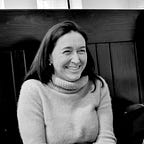How Malcolm X, André Weil, and Antonio Gramsci Learned Their Way to Greatness
In times of struggle, an inner life brings us power
So often in our careers and relationships, knowledge is exchanged for money or for power, for approval or for a sense of belonging, to mark out superiority in status or to feel important. But a human being is more than his or her social uses. Our intellectual growth matters all on its own. Literature, philosophy, or mathematics can enlighten and console us when nothing else will. Connecting with others shapes relationships that reach our depths. This is why an inner life is worth cultivating.
Learning for its own sake is a way to recover one’s real value. It opens vistas to the powerless, the poor, and the oppressed — and is thus a source of dignity. This helps to explain why so many ordinary people as well as extraordinary thinkers have turned to the work of the mind in struggle and seclusion.
In 1940, the French mathematician André Weil — brother of the philosopher Simone Weil — was imprisoned for refusing to serve in the army. During his three months in prison, he undertook the mathematical proof that would come to secure his professional reputation. He wrote to his wife, noting the irony of his situation: “My mathematics work is proceeding beyond my wildest hopes, and I am…
